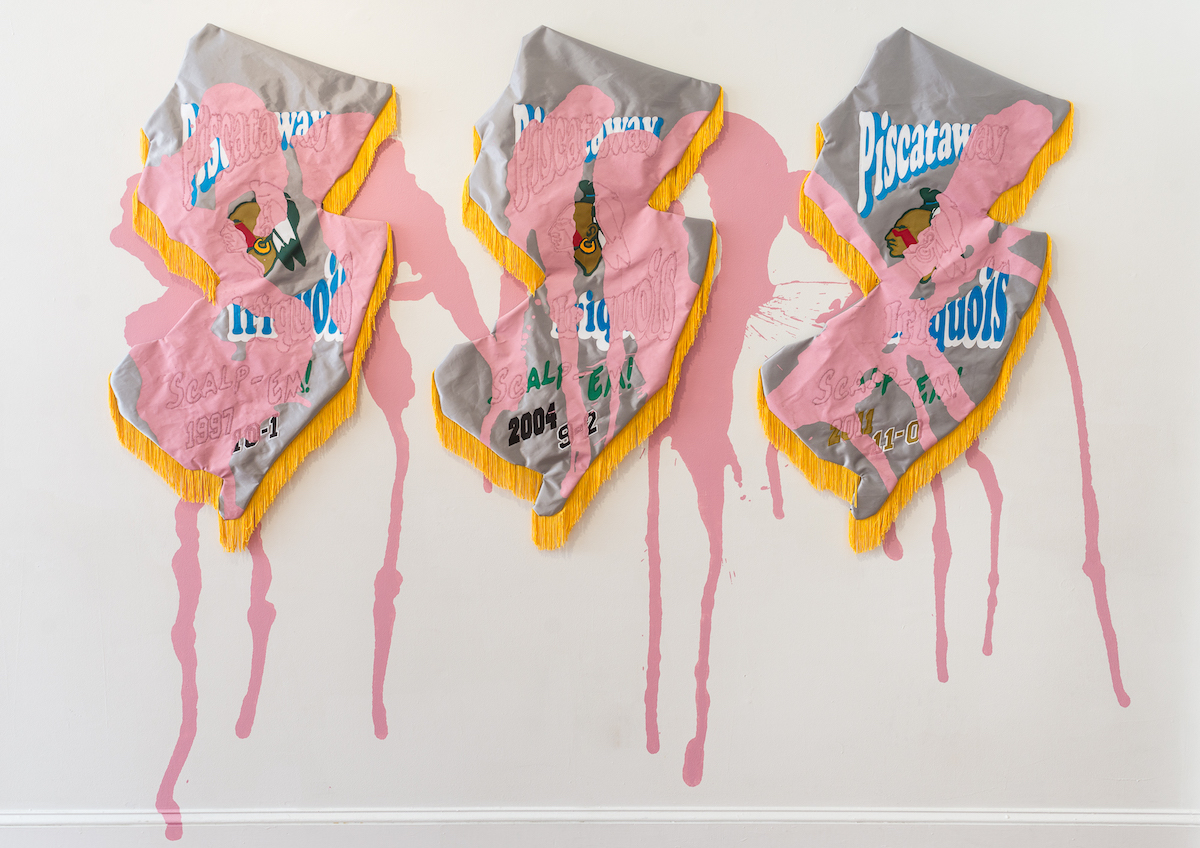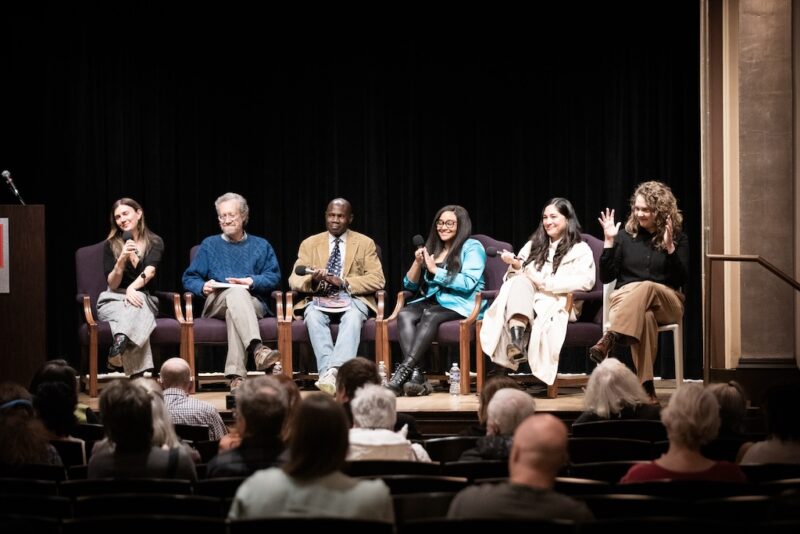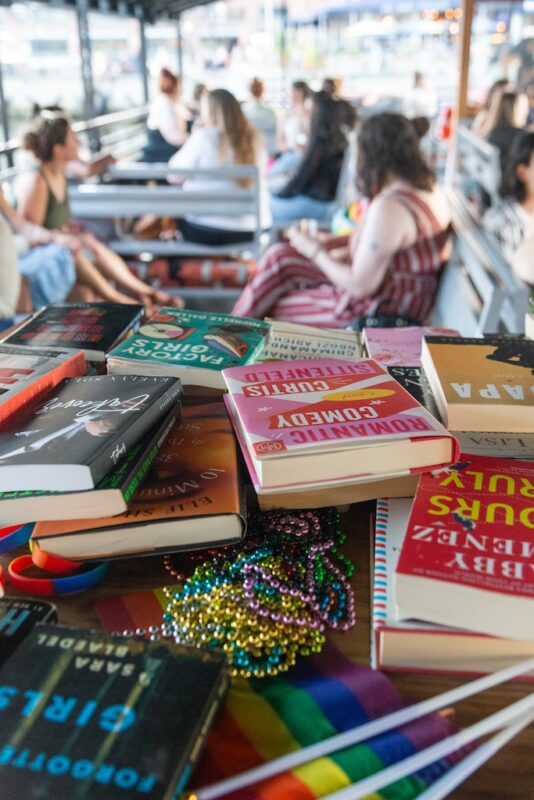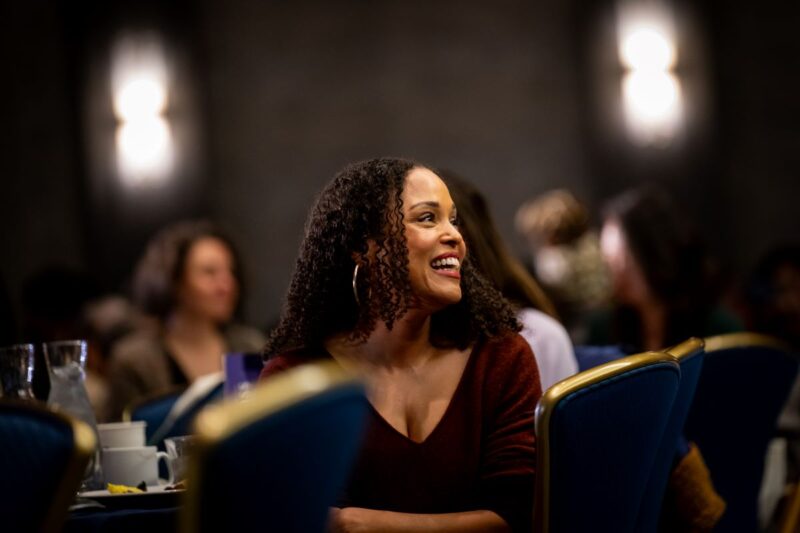Michael Tager Delves into a Writing Den Without Limits: Zora’s Den
My group formed organically enough: I asked my buddy, then two others, then we asked people we met through the scene. Like many writers, I belong to a cohort of like-minded folks. We get together once a month—sometimes at our houses, sometimes at bars or cafes—and we read each other’s work, critique, encourage, and most importantly: support each other. After two years of these meetings, I still look forward to it every month.
I never questioned this process until I recently spoke with a poet friend of mine, Rea Harris, who mentioned a new online writing group she joined. It was, she explained, a Facebook group specifically for African American women writers. It served many functions and she was excited about the possibilities it held, especially concerning the many challenges and barriers for AA women. This virtual writing group— Zora’s Den—was bred out of a lack of groups designed for the audience and content AA writers are creating, exploring, and seeking.
After speaking with Victoria Adams-Kennedy, the creator and founder of Zora’s Den, as well as three of the group members (Jeida Walker, Clynthia Burton and Dionne Peart), my questions were answered. Looking forward to the future, they were all excited about the group, its purpose, and its promise. I have to say, I am as well.

So, what exactly is Zora’s Den?
VICTORIA: Zora’s Den is a writing group formed specifically for Black women writers. It’s currently a secret group on Facebook and membership is by invitation.
We discuss writing, the importance of consistency in our writing practices, and we encourage each other to set goals and work toward them, both individually and together. I might ask the group what their writing goals are for the day and then get their responses, which range from just writing a paragraph to meeting a 500-word challenge or working on revisions for a novel.
The members also pose questions. If someone is having problems with dialogue or character development (or any writing dilemma), she will ask the group for suggestions. They also give tips on good places to write and share information about submission opportunities or upcoming workshops. A few members found out through the group that they were at AWP at the same time and tried to meet in person. We are more community, which is the main thing I promote.
How did Zora’s Den come about? Did you brainstorm it alone?
VICTORIA: The nucleus of Zora’s Den started forming in undergrad, when I took a class on the Black Arts Movement and realized many of the prominent Black women authors I’d followed and loved were vital parts of the movement: Maya Angelou, Sonia Sanchez, Nikki Giovanni, Audre Lorde, Lorraine Hansberry. Their work helped shape and influence Black literature created during that period.
I imagined them having a great sisterhood. I wanted something like that, speaking from similar perspectives and not having to explain cultural references, just appreciating the common bond and writing about it.
I started asking other Black women writers after classes, if they would be interested in something like that. Eventually, I got more interest until I had a core group of about five writers.
Through the demands of school, the idea was put on hold but always with the plan that I would bring it to fruition.
Through a conversation with my brother, Derrick Adams, a NY-based artist, the idea was given a name. He knew I loved Zora Neale Hurston and because I had entertained the thought of including a retail component, he suggested Zora’s Den. I loved it and immediately purchased the domain for a website. However, the website has sat undeveloped for a few years.
Fast forward to January 2017, when I posted a New Year’s statement of intention to connect more with other women writers and it got affirmative responses within minutes. Woman after woman responded with “I’m in.” And I thought, “I’m in what?” First of all, I was pleasantly surprised that all these other women were looking for the same connection. Second of all, now that I had their attention, what was I going to do with it? It hit me that it could be the beginning of Zora’s Den, so I created a FB group, wrote an invitation and started [emailing] the women who expressed interest. Most of them joined right away.
Zora’s Den currently has 70 members. We’re from all over the country: California, Michigan, Nevada, Maryland, Georgia, Florida, Illinois, Texas. We have quite a few Carribbean-American members and a new member from Uganda.
CLYNTHIA: Prior to the launch of Zora’s Den, Victoria and I met to discuss how to launch. We also talked quite a bit about the limitless opportunities in the city for Zora’s Den and the need—while trying to closely align what the Den would look like and what it would do in the beginning.
Zora’s Den focuses on the African-American female writer. For example: posts are received on the site about places that publish African-American and women writers that others might not know about. Prompts are given to increase writing and everyone in the group can respond by giving constructive critiques; regular post are about our muses, like Toni Morrison, Alice Walker, Octavia Butler…this is to keep us inspired and informed. So we are focused on us by us to help us achieve our dreams of being published and accomplished writers.
Go to a bookstore and see the ratio of African American writer’s books, and especially AA women. Like WOC in New York and other groups around the US, the need for Writers of Color to be in a supportive writing environment is tremendous.
For the AA youth, it is an imperative that we write our own stories and teach them to do the same. It is important to establish our own vehicles for getting the work out and not solely wait for an industry that is woefully lacking in the publication of African-American Writers.
That’s amazing and you make it sound so easy. Were there any challenges?
VICTORIA: I had a few Black women writers who didn’t think a writing group specifically for Black women was necessary. I explained to them that love of themselves did not mean hate or opposition to anyone else and just left it right there. What I was aiming for simply wasn’t for them, which is fine. We don’t have to share the same mindset, based on a shared race.
That makes sense. And it sounds like even if it isn’t for some people, more people are into the idea. How are people joining? Is there a vetting process?
CLYNTHIA: My involvement in Zora’s Den began in a UB class on Toni Morrison. Myself, Victoria and other African-American females would talk, not just about Morrison’s writing or her relevancy to our existence as writers, but also the void we felt in a predominantly Western-European focused curriculum. The seeds of starting something that would provide support, resources, and a direct communication line, in an actionable way, started to sprout.
VICTORIA: So far, the members were chosen from my FB post. They consist of writers I’ve met in other groups and through an anthology called The Dating Game (Brown Girls Books, YEAR) [which] includes one of my stories. Other members were invited by members but had to wait for approval.
JEIDA: I connected with Victoria on Facebook and I adored her energy and her encouraging spirit. When she mentioned creating a safe place for sister scribes to come together and connect through our mutual love for writing, I knew I needed to be a part of such a community.
DIONNE: Victoria invited me to join. I liked the idea of a group of black women writers interested in connecting with others for encouragement. Writing can be a solitary activity, so it’s nice to check in and know that others are out there burning the midnight oil or working as the sun rises.

How is Zora’s Den different from other writing groups?
VICTORIA: It’s shaping organically, through the combination of writers and their needs and input. Our common element is that we are Black women who are at different places in our careers – from veteran published authors to novices finding their voices.
DIONNE: I joined in February and so far, it’s all been online, which actually seems to work for us. We live in different locations and have other activities like jobs and families that would make it challenging to meet in person on a regular basis.
JEIDA: Zora’s Den gathers women who write different genres, who bring different aspects, techniques, and perspectives to the craft. Some other groups I’ve been involved with have come across as exclusive and high-brow, while Zora’s Den is so welcoming and warm. Victoria’s positivity creates such a peaceful environment that perfectly embodies the name—you feel like you’re sitting around the fireplace in the den with your sister friends, creating amazing worlds through writing.
DIONNE: We also have different writing habits—some work at home, some at libraries, some at cafes. We write at different times of the day, some prefer music and some prefer silence. The ability to check in online and gain some courage and motivation from fellow writers in a way that fits our lifestyles is nice. The group is also different in that it’s exclusively about writing—we share tips and resources and celebrate each other’s successes, but you don’t see much in the way of self-promotion or selling, though I do think members would go out to support a writer’s book event.
Why is it imperative that Zora’s Den exists?
DIONNE: Writing is a solitary activity, so it’s nice to know you’re not alone. There’s also a little bit of the accountability that we all need—it might be attempted to skip a writing session or cut it short, but when you see other members are working (or struggling), it might be the push you need to get work on that goal you set for yourself.
JEIDA: We gain strength and ideas and endless possibilities when we work together and push each other toward our individual goals. I feel that support from Zora’s Den.
VICTORIA: A community was needed to connect us in our common bond, our experiences, our voices, our expressions. We have a place that is distinctive in this country and it needs to be reinforced and affirmed that it’s okay to embrace it and indeed, celebrate it. It’s not divisive. It’s loving ourselves enough to promote and build-up each other. It’s a source of strength.
We’ve talked a lot about community. How does that sense of community come to the surface within Zora’s Den?
DIONNE: We are all working on individual projects, but we might set common goals like daily word counts to keep ourselves on track.
JEIDA: Any given time, the ladies of Zora’s Den are always working together to encourage another writer and provide insight on projects we are working on. Whether it’s celebrating a writing goal or accomplishment, or even if we have a moment of writer frustration, I can always count on leaving Zora’s Den feeling refreshed. Just recently I was feeling down about the little progress I’d made on my novel, and my sisters came in haste to send me endless notes of love and encouragement. This is the type of accountability that only comes from a community who cares.
CLYNTHIA: I try to post at least once or twice a week, but I visit the site everyday…sometimes just a word or an experience is helpful in my own writing or just lifting me up after a rejection letter or experiencing writers block. I go on every night to read Victoria’s last post. I will let her tell you about keeping the lights on….it is so warm and connecting.
JEIDA: When I have time off, I like to spend time connecting with the ladies in the Den.
DIONNE: Victoria is great at posting questions to generate discussion and I often participate in those.
VICTORIA: I also plan to use [Zora’s Den] to advertise the literary events, conferences and retreats create by other Black women writers. I’m not in competition. I want this community to be a part of an even larger community—a network, so to speak. We are stronger together.
It sounds like it’s really successful! Is the success Zora’s Den is seeing going to breed more success and more women joining? How would that look?
JEIDA: Zora’s Den has already grown so much in a short amount of time. I can see writer retreats, conferences, panel discussions. As long as we keep the integrity of the group and Victoria as our fearless leader, there’s no limit to what will become of Zora’s Den.
VICTORIA: We have members from coast to coast. I’d like to see them meet others in their regions to discuss writing and their regional and national concerns that will create ideas to write about.
DIONNE: Growing the Den would be great—connecting with a diverse group of writers is always. Perhaps a writing retreat—locally (good) or internationally (better)!
CLYNTHIA: We would like to do live readings or [have] our ZD members, become active, as a collective, in the Baltimore Art scene; allow members in who are not from Baltimore—especially because we have already gotten requests from many places. And maybe one day we will have our own publishing/journal out there. We all feel the sky is the limit in supporting, promoting our sisterhood and getting our work out into the world.
VICTORIA: Right now I’m enjoying the organic shaping of the group, but I am considering advertising the group to literary events, conferences and the like.
What are future “pipe dreams,” i.e. big plans that you can’t promise will happen, but you really want them to?
VICTORIA: The website for Zora’s Den was created from the beginning, as a sort of placeholder…I wanted to lock down the domain for future use. I will have it developed, once I start advertising and a writing retreat is created.
My vision for Zora’s Den has been in place since its inception. I want a physical location for the Den. I want to provide a chill spot for Sister Writers to come together, to motivate each other, have conversations that are thought provoking and lead to better writing. I want a space where authors can have readings and writers can come for space to write, as opposed to a café. This would be the crown on the community.

**********
Author Michael B. Tager is a Baltimore-based writer and editor with a reasonable wariness of bears. You can read more of his work at his website.
For more information, or if you want to join Zora’s Den, please contact via Facebook or her website.
About the interviewees:
Victoria Adams-Kennedy (pictured at top) is a 53-year-old writer based in Baltimore with an MFA in Creative Writing and Publishing Arts from the University of Baltimore. “I’m striving to get my work out into the world. I’m also a singer who sometimes performs in the Baltimore area with my jazz/r&b band. However, the singing has been taking a backseat to my writing for the past couple of years. I don’t perform nearly as much as I used to. When I’m not indulging my passions, I’m most likely reading a book or hanging out with my two granddaughters, Zoey and Ayden.”
Clynthia Burton is a fiction writer. The predominant focus of her stories involves experiences and characters from African-American life, past and present. “I am a relatively recent transplant to Baltimore. However, I have been a distant lover of the city for years. I am also about to enter my third and final year at the University of Baltimore (UB)’s Master’s Program for Creative Writing-Fiction. My work has been honored by the Maryland Writer’s Association, the Hurston/Wright Foundation and I am a published author. Last, but never least, I am a mom and a grandmom!”
Dionne Peart currently lives in Washington, D.C. “My parents are Jamaican, I was born in England and grew up in Canada. I style myself as a lawyer by day and a writer by early, early day – I like to get to the good stuff first! I write upmarket and literary fiction, usually set in the Caribbean or featuring Caribbean characters – growing up in an ethnically diverse city, I gravitate towards international fiction. I’m working on my third novel and a collection of short stories.”
Jeida Walker is a budding Women’s Fiction author. “I am originally from Atlanta, Georgia and I currently reside in Orlando, Florida with my husband. I have been featured in two of Brown Girls Books bestselling anthologies, including the award-winning title The Ex Chronicles.”






